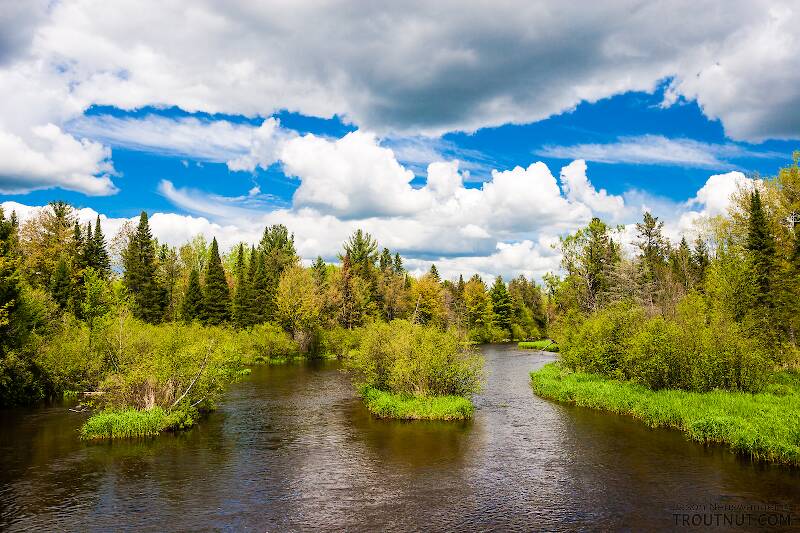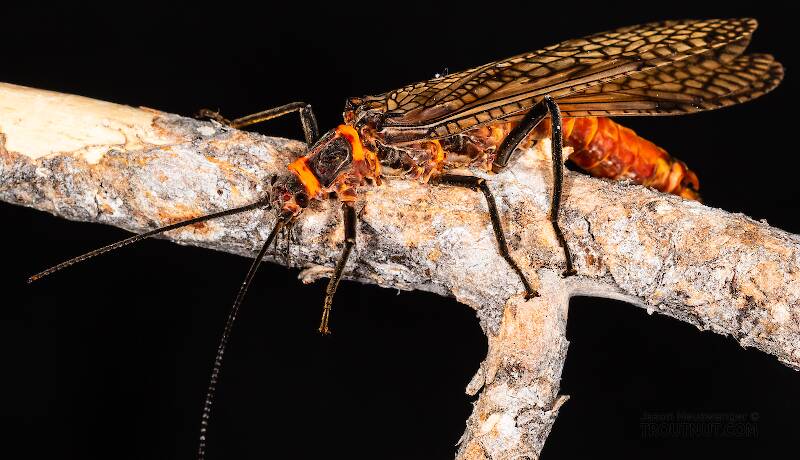
Salmonflies
Pteronarcys californica
The giant Salmonflies of the Western mountains are legendary for their proclivity to elicit consistent dry-fly action and ferocious strikes.
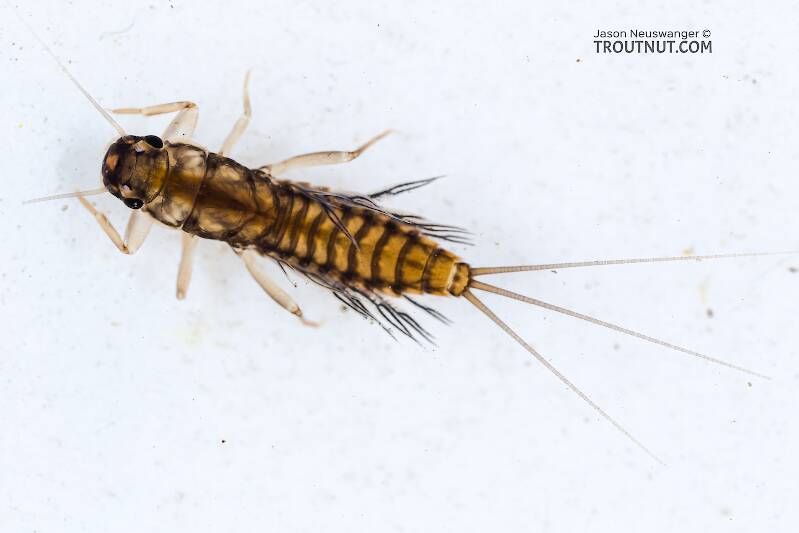

Female Drunella tuberculata Mayfly Dun Pictures
I don't know for sure that this is Drunella tuberculata, but that's my best guess for now.
It certainly has a different look and much more robust body shape from Drunella lata duns I photographed a couple weeks earlier, so I doubt it's that species. Using distribution records to eliminate other choices narrows this down to Drunella tuberculata or Drunella walkeri.
Markings described for the abdominal sternites of the male spinner of Drunella tuberculata are suspiciously similar to those on this female dun. Also, this dun is 9.5mm long (my ruler pic isn't very good, but I'm basing this on measuring the real thing). The size range given in the old Allen & Edmunds keys for walkeri females is 7-8mm, while tuberculata is 9-11mm. For these reasons I'm sticking it in tuberculata for now.
This is the only Drunella mayfly I saw all day. I scooped it off the water as it emerged at around 7pm from a big Catskill tailwater.
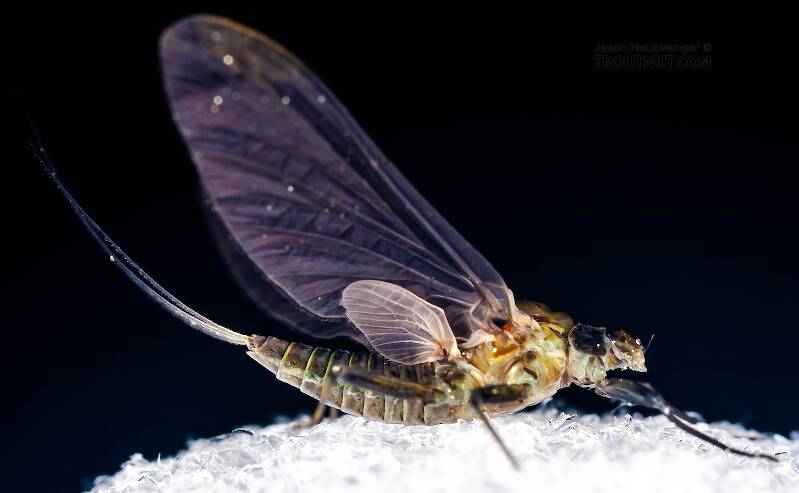
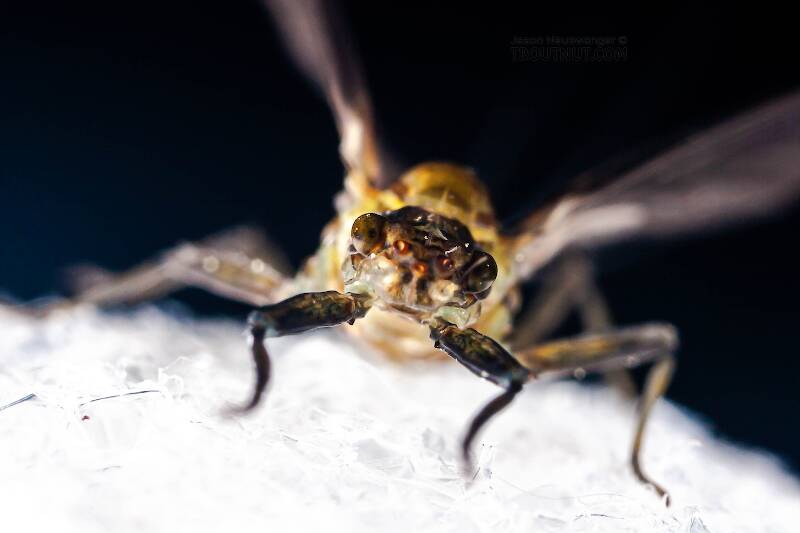
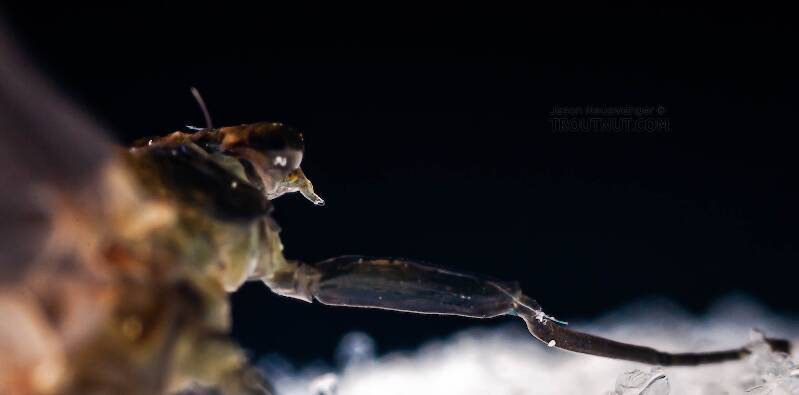
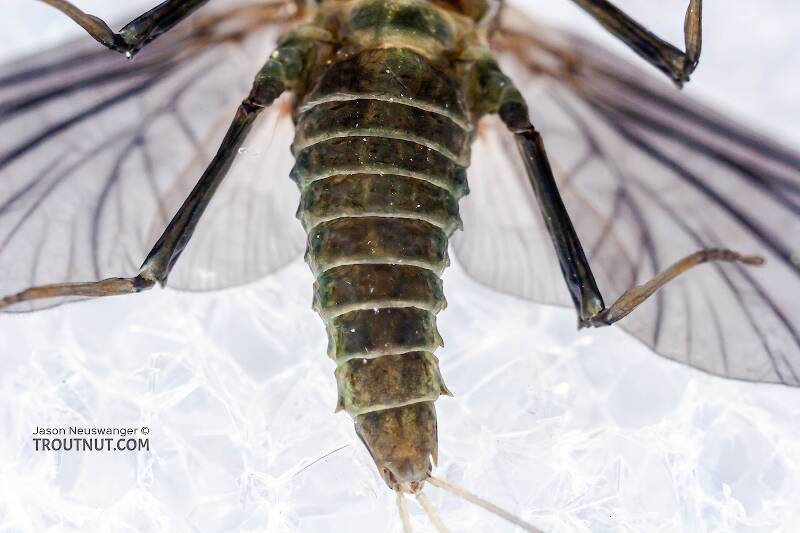
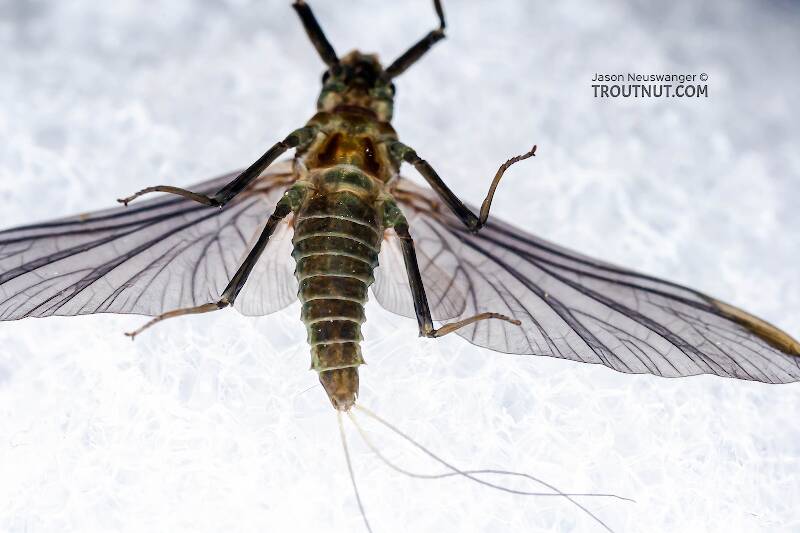
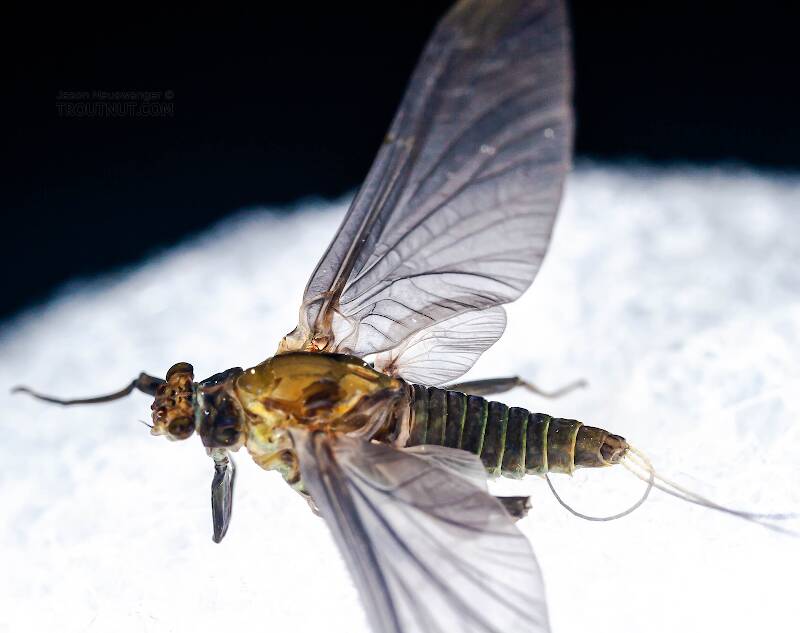
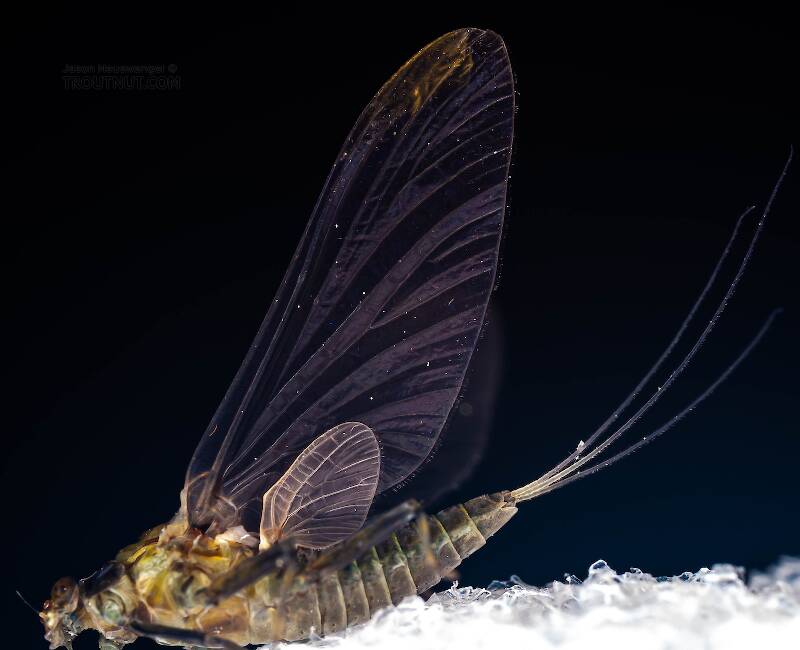
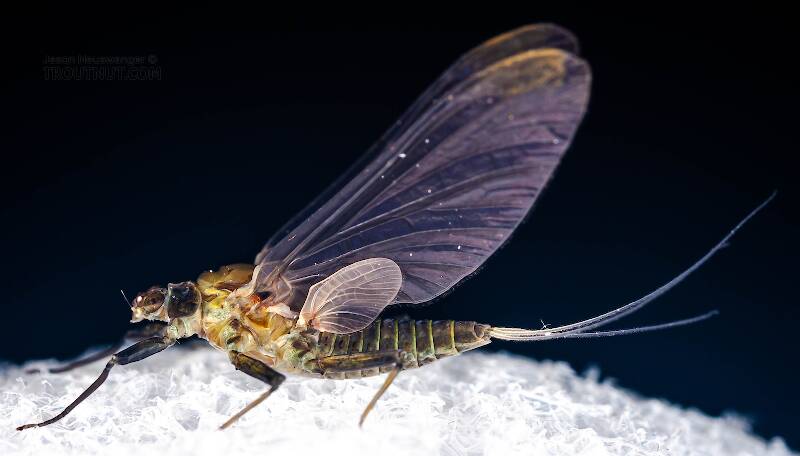
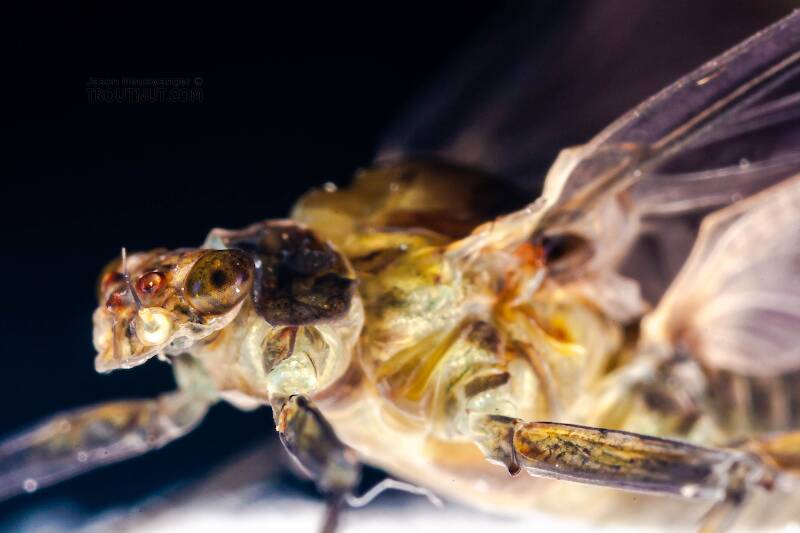
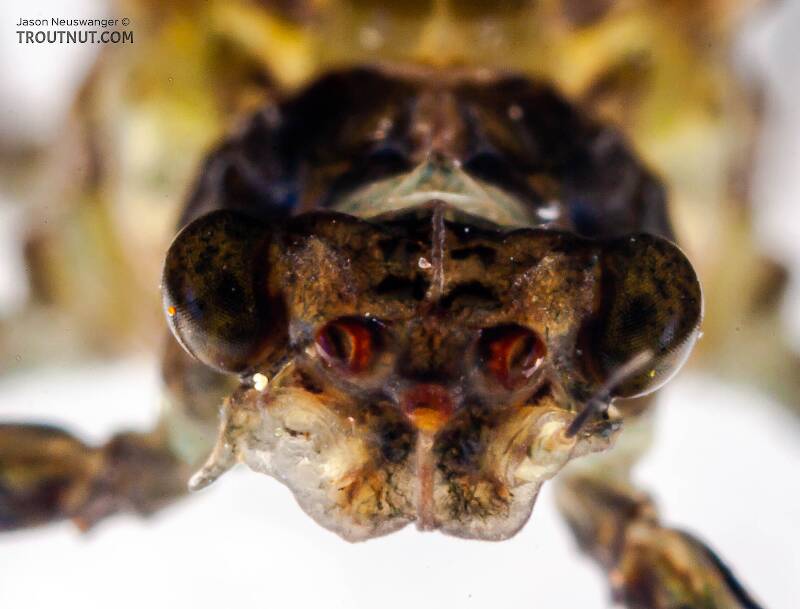
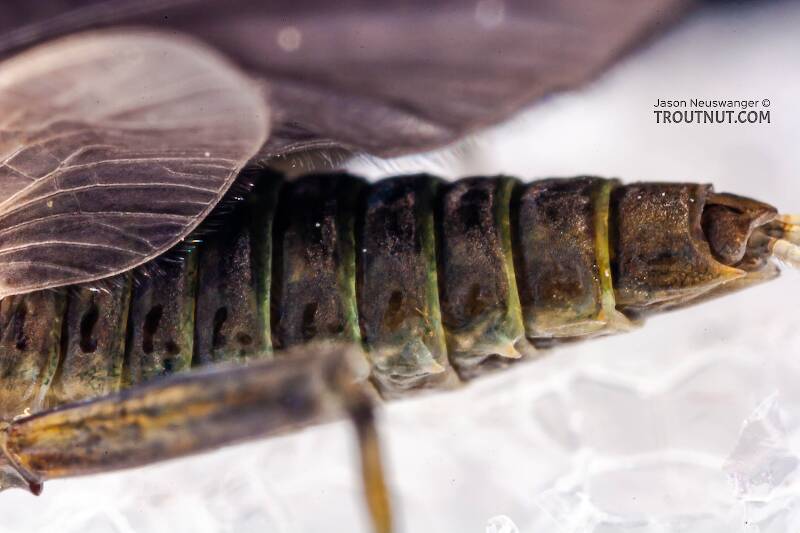
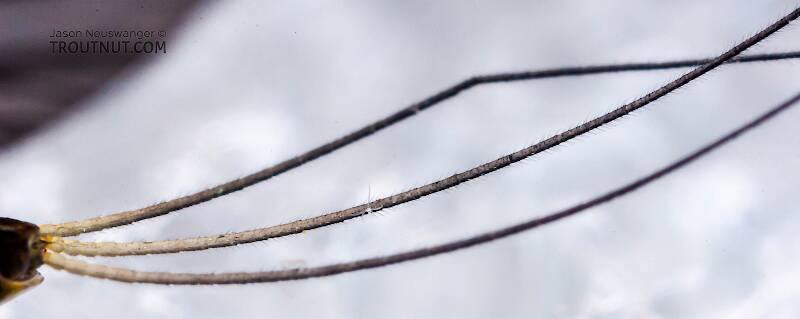
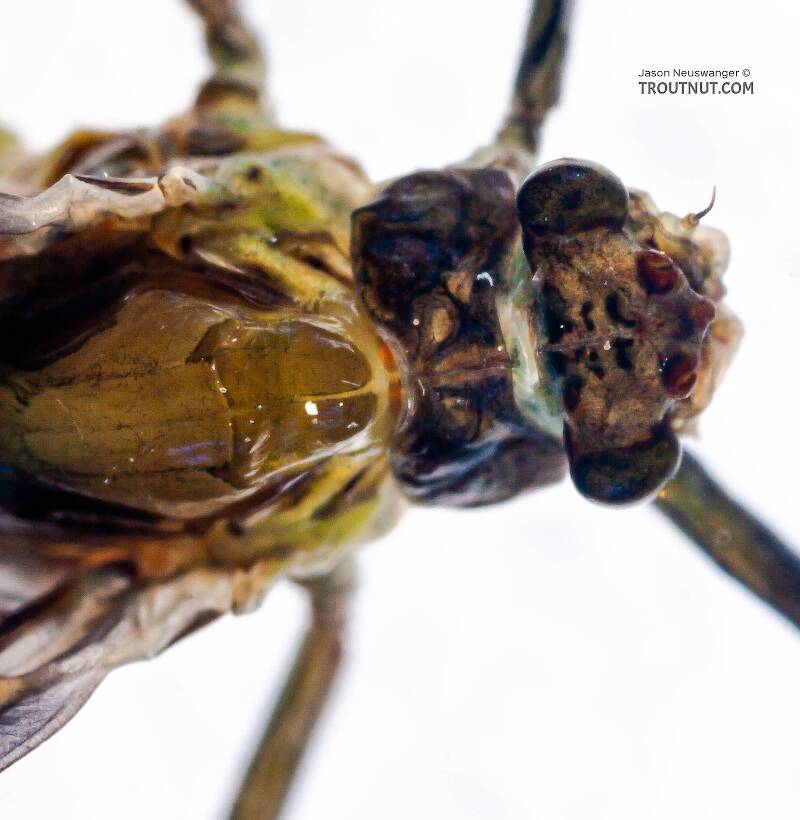
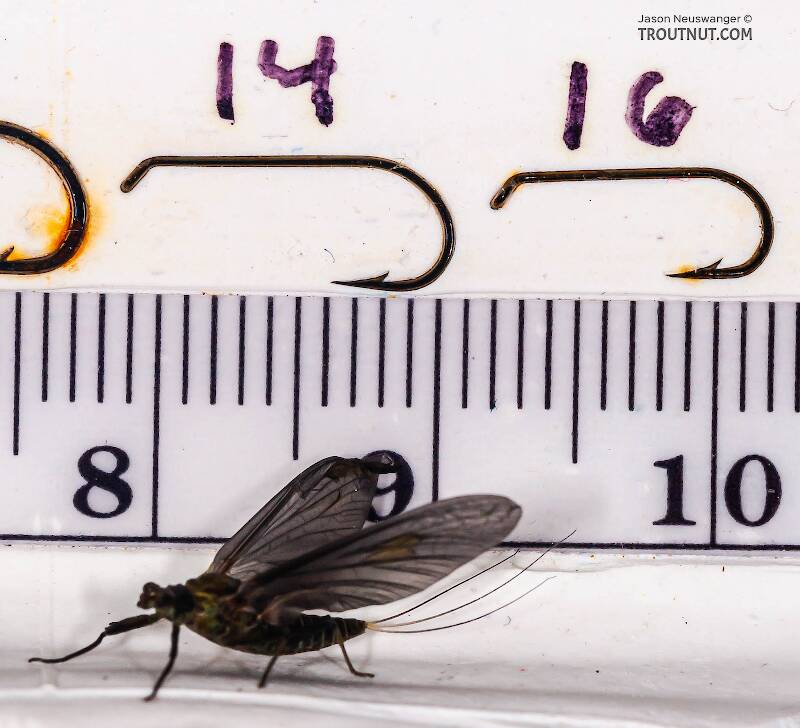
This mayfly was collected from the West Branch of the Delaware River in New York on June 7th, 2007 and added to Troutnut.com by Troutnut on June 8th, 2007.
Discussions of this Dun
Start a Discussion of Dun
References
- Jacobus, L. M., Wiersema, N.A., and Webb, J.M. 2014. Identification of Far Northern and Western North American Mayfly Larvae (Insecta: Ephemeroptera), North of Mexico; Version 2. Joint Aquatic Science meeting, Portland, OR. Unpublished workshop manual. 1-176.
Female Drunella tuberculata Mayfly Dun Pictures
Collection details
Date: June 7th, 2007
Added to site: June 8th, 2007
Author: Troutnut

